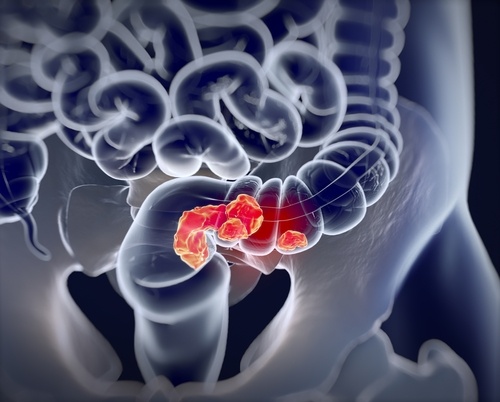
Recently, a small-scale rectal cancer trial conducted by Memorial Sloan Kettering Cancer Center yielded amazing results as every single patient who received an experimental immunotherapy achieved remission.
The study, which was published in the New England Journal of Medicine, has included 14 patients to date, all of whom had locally advanced rectal cancer with a mismatch repair deficiency (MMRd). “They lack a gene that enables them to repair their DNA and because of that, they have many, many mutations, and the immune system recognizes the cancer is foreign,” oncologist Andrea Cercek, a coauthor of the study from Memorial Sloan Kettering Cancer Center, tells CNN. “When we give immunotherapy, like dostarlimab, it really just revs up the immune system so that it sees the cancer and gets rid of it.”
Results Exhibit 100% Success Rate
The population of interest were treated with the novel, experimental immunotherapy dostarlimab (GlaxoSmithKline) over the duration of six months. The immunotherapy works not by attacking the cancer directly, but rather by augmenting the immune system to combat the disease. Subsequent to treatment, the cancer was undiscernible to every detection modality, from physical exam to MRI scan.
As reported by The New York Times, one study subject, Sascha Roth, was in amazement when doctors gave her the news that was now cancer free, “I told my family,” she told The Times. “They didn’t believe me.”
“I believe this is the first time this has happened in the history of cancer,” remarked Luis A. Diaz Jr., an oncologist at Memorial Sloan Kettering Cancer Center and author on the new study, to the New York Times’ Gina Kolata.
What’s Next?
Dr. Hanna Sanoff of the University of North Carolina’s Lineberger Comprehensive Cancer Center told said in an NPR interview about the next steps for this potentially game-changing drug: “What I’d really like us to do is get a bigger trial where this drug is used in a much more diverse setting to understand what the real, true response rate is going to be. It’s not going to end up being 100 percent. I hope I bite my tongue on that in the future, but I can’t imagine it will be 100 percent. And so when we see what the true response rate is, that’s when I think we can really do this all the time.”







 © 2025 Mashup Media, LLC, a Formedics Property. All Rights Reserved.
© 2025 Mashup Media, LLC, a Formedics Property. All Rights Reserved.